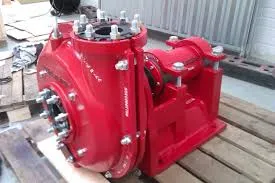Sindhi
- Afrikaans
- Albanian
- Amharic
- Arabic
- Armenian
- Azerbaijani
- Basque
- Belarusian
- Bengali
- Bosnian
- Bulgarian
- Catalan
- Cebuano
- Corsican
- Croatian
- Czech
- Danish
- Dutch
- English
- Esperanto
- Estonian
- Finnish
- French
- Frisian
- Galician
- Georgian
- German
- Greek
- Gujarati
- Haitian Creole
- hausa
- hawaiian
- Hebrew
- Hindi
- Miao
- Hungarian
- Icelandic
- igbo
- Indonesian
- irish
- Italian
- Japanese
- Javanese
- Kannada
- kazakh
- Khmer
- Rwandese
- Korean
- Kurdish
- Kyrgyz
- Lao
- Latin
- Latvian
- Lithuanian
- Luxembourgish
- Macedonian
- Malgashi
- Malay
- Malayalam
- Maltese
- Maori
- Marathi
- Mongolian
- Myanmar
- Nepali
- Norwegian
- Norwegian
- Occitan
- Pashto
- Persian
- Polish
- Portuguese
- Punjabi
- Romanian
- Russian
- Samoan
- Scottish Gaelic
- Serbian
- Sesotho
- Shona
- Sindhi
- Sinhala
- Slovak
- Slovenian
- Somali
- Spanish
- Sundanese
- Swahili
- Swedish
- Tagalog
- Tajik
- Tamil
- Tatar
- Telugu
- Thai
- Turkish
- Turkmen
- Ukrainian
- Urdu
- Uighur
- Uzbek
- Vietnamese
- Welsh
- Bantu
- Yiddish
- Yoruba
- Zulu
Telephone: +86 13120555503
Email: frank@cypump.com
Nov . 28, 2024 06:35 Back to list
High Performance Submersible Sewage Pumps for Challenging Environments and Heavy-Duty Applications
Heavy-Duty Submersible Sewage Pumps Essential Equipment for Efficient Waste Management
Heavy-duty submersible sewage pumps are critical components in modern waste management systems, especially in commercial, municipal, and industrial applications. These pumps are designed to handle the challenging task of transferring sewage and wastewater efficiently, ensuring that facilities can manage their waste without disruption. This article delves into the importance, functioning, and key features of heavy-duty submersible sewage pumps.
Importance of Heavy-Duty Submersible Sewage Pumps
Wastewater management is a pressing issue faced by many regions worldwide, with the need for effective solutions becoming increasingly vital. Heavy-duty submersible sewage pumps provide an efficient means of transporting wastewater from collection points to treatment facilities. They are indispensable in flood-prone areas, construction sites, and industrial applications, where wastewater removal is crucial for health and safety.
These pumps are particularly valuable in municipal systems where large volumes of sewage must be moved quickly due to population density. By utilizing robust, heavy-duty pumps, municipalities can prevent backflow and overflows, which lead to environmental contamination and public health hazards. Furthermore, these pumps enable efficient operation in challenging environments, such as sewage treatment plants, where they can perform consistently under varying conditions.
Functioning of Heavy-Duty Submersible Sewage Pumps
Heavy-duty submersible sewage pumps operate underwater, which eliminates the need for a suction line and allows them to be placed directly in the sewage. These pumps are designed to submerge completely, which helps in reducing the risk of cavitation and air entrapment, enhancing overall efficiency.
Typically, these pumps are equipped with a motor that is hermetically sealed to prevent water ingress. The impellers, which are the heart of the pump, are constructed from robust materials such as stainless steel or cast iron to withstand corrosion and abrasion caused by the abrasive components of sewage, including solids and other debris.
When activated, the motor spins the impeller, generating centrifugal force that pushes the sewage through the discharge outlet. The design of these pumps allows them to handle solid materials, including rags, plastics, and other debris, which is essential for maintaining smooth sewage flow without clogs.
heavy duty submersible sewage pumps

Key Features of Heavy-Duty Submersible Sewage Pumps
1. Robust Construction The use of high-quality materials ensures durability and extends the service life of the pump, even under harsh conditions. Heavy-duty pumps are often coated or designed to resist corrosion and wear.
2. High Flow Capacity These pumps are capable of moving large volumes of sewage rapidly, making them ideal for emergency situations, such as flooding or sudden influxes of wastewater.
3. Automatic Operation Many heavy-duty submersible sewage pumps come with automatic float switches that enable them to turn on and off based on the water level. This feature prevents overflow and ensures optimal operation without the need for manual intervention.
4. Energy Efficiency Modern pumps are designed to operate efficiently, which helps reduce energy consumption. Energy-efficient models are beneficial for long-term operational costs, especially in facilities that rely on continuous sewage management.
5. Adaptability and Versatility Submersible sewage pumps can be used in various applications, including municipal systems, construction sites, industrial wastewater management, and even residential applications where sewage needs to be lifted to a higher elevation for disposal.
Conclusion
In conclusion, heavy-duty submersible sewage pumps are indispensable tools in the effective management of wastewater across various sectors. Their robust design, efficiency, and ability to handle abrasive materials make them a preferred choice for many municipal and industrial applications. Investing in high-quality sewage pumps not only ensures compliance with environmental regulations but also promotes public health and safety by preventing sewage overflow and contamination. As the challenges of wastewater management continue to evolve, the demand for advanced and reliable submersible sewage pumps will only grow, underscoring their critical role in modern infrastructure.
-
Reliable Non-Clog Sewage Pumps with GPT-4-Turbo Tech
NewsAug.04,2025
-
High-Performance Air Pumps for Sand & Gravel | Efficient Transport
NewsAug.03,2025
-
ISG Series Vertical Pipeline Pump - Chi Yuan Pumps Co., LTD.|Energy Efficiency, Corrosion Resistance
NewsAug.03,2025
-
ISG Series Pipeline Pump - Chi Yuan Pumps | Energy Efficiency&Compact Design
NewsAug.03,2025
-
ISG Series Vertical Pipeline Pump - Chi Yuan Pumps Co., LTD.|High Efficiency, Low Noise, Durable
NewsAug.02,2025
-
ISG Series Vertical Pipeline Pump - Chi Yuan Pumps | High Efficiency, Low Noise
NewsAug.02,2025










